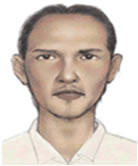Investigation
This section needs additional citations for verification .(August 2017) |
Six days after the bombing, on August 11 al-Qaeda claimed responsibility, via the Arab media Al Jazeera, and singled out Australia for special attention. [3] The statement said
This operation is part of a series of operations that Dr Ayman al-Zawahiri has promised to carry out. [It is] a fatal slap on the face of America and its allies in Muslim Jakarta, where faith has been denigrated by the dirty American presence and the discriminatory Australian presence". [3]
Jemaah Islamiyah (JI), an organisation affiliated with al-Qaeda, is alleged to have carried out the bombing. The al-Qaeda link has been backed by Indonesia's Minister of Defense, Matori Abdul Djalil who said the JW Marriott bombers had trained with al-Qaeda in Afghanistan and Pakistan. "Each one of them has special abilities received from training in Afghanistan and Pakistan," Matori Abdul Djalil said on 11 August 2003. He also claimed that the bombers were linked to a group of people arrested in the eastern Indonesian town of Semarang during July 2004 and are alleged to be members of Jemaah Islamiah.
There are many more Jemaah Islamiah members on the loose in Indonesia.... Because of this I am sure that JI is behind all of this.
On 5 May 2006 the International Crisis Group released its Asia Report No 114 entitled Terrorism in Indonesia. It described the events leading up the attack;
The trigger for the JW Marriott bombing came in December 2002, when Indonesian police stepped up the hunt for Jemaah Islamiyah members while investigating the 2002 Bali bombings. Toni Togar, a JI member based in Medan, North Sumatra, was nervous, because his house stored all the explosives left over from JI's 2000 Christmas Eve bombings. He contacted Noordin Mohammad Top to tell him he was going to throw them out. Noordin had been part of the team that carried out the Christmas Eve bombings which was led by Hambali and included Imam Samudra and many of the other 2002 Bali bombers. He told Togar to hold on as he "saw good materials being wasted".
Abu Bakar Bashir approved of Hambali's activities, and Toni Togar was selected to take part in the new bombing plot. Hambali had already set a precedent for a secret team pursuing jihad on its own. This was in part because he controlled the separate funding from al-Qaeda. In January 2003, Muhammad Rais, Noordin and Azahari Husin moved to Bengkulu, where a group of JI members lived, including Asmar Latin Sani, who became the JW Marriott suicide bomber. The next stages of the operation took place in February 2003 when the explosives were transported from Dumai to Bengkulu via Pekanbaru,
Azahari secured the detonators with a new team member, Masrizal bin Ali Umar. also known as Tohir, another Pondok Ngruki graduate and a Luqmanul Hakiem teacher who was a close friend of Rais. After the explosives safely reached Bengkulu as unaccompanied baggage on an intercity bus, they were stored at the house of Sardona Siliwangi, another Ngruki student and JI member. At the time, Sardona, who was working with Asmar Latin Sani, opened a bank account in March 2003 to facilitate financial transactions for Noordin.
In late April 2003, Mohamed Ihsan also known as Gembrot and Idris, who was involved in the 2000 Christmas Eve bombings transported the explosives again. In May, he and Toni Togar, robbed a bank in Medan on May 6 to raise funds for the project. "Ismail", a Luqmanul Hakiem student who had worked with Rais and Noordin in the shock absorber repair shop in Bukittinggi, then received an email from Noordin asking him to pick up some packages from a man in Dumai. Ismail obliged, and the package turned out to be cash in Australian dollars, sent by Hambali via a courier.
A book that appears based in part on transcripts of Hambali's interrogation says Hambali arranged for A$25,000 to be sent: A$15,000 for operational expenses, A$10,000 for Bali bomber families. Conboy, op. cit., p. 229. Hambali's younger brother, Rusman Gunawan, who was arrested in Karachi in September 2003, testified Hambali had secured a promise of A$50,000 from an Noordin on how to bring the cash from Dumai to Lampung.
On 4 June 2003, in Lampung, the final team was put together: Noordin, Azhari, Ismail, Asmar Latin Sani, and Tohir. Noordin assigned the tasks and explained that he was in charge, Azhari was field commander and Ismail his assistant. Asmar and Tohir would be in charge of renting the house, buying the vehicles and getting the explosives to Jakarta. Asmar had agreed to be the suicide bomber. When they got to Jakarta, they split into two teams to survey four possible targets. Azhari and Ismail examined the JW Marriott and a Citibank branch; Noordin and Tohir looked at the Jakarta International School and the Australian International School. Eventually they decided on the hotel because of the American brand name and the fact that it was easy to reach. The bombing took place on 5 August.
They all drove back to Blitar with 25 kilograms of potassium chlorate and ten kilos of sulfur for bomb making, as well as a pistol and ammunition. Not long afterwards, another operative delivered 30 extra kilograms of TNT.
Around this time a pamphlet was circulating in jihadist groups that was a translation from Arabic into Indonesian of an article that first appeared in the al-Qaeda on-line magazine Sawt al-Jihad. Entitled "You Don't Need to Go to Iraq for Jihad", it was written in 2003 by a Saudi jihadist, Muhammad bin Ahmad as-Salim. [9]









